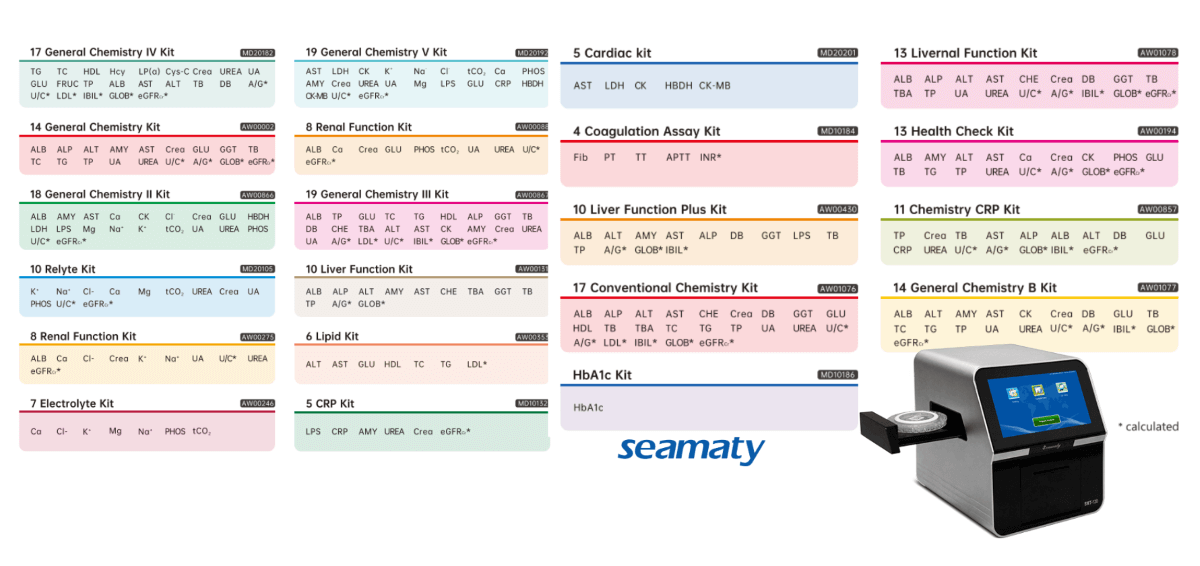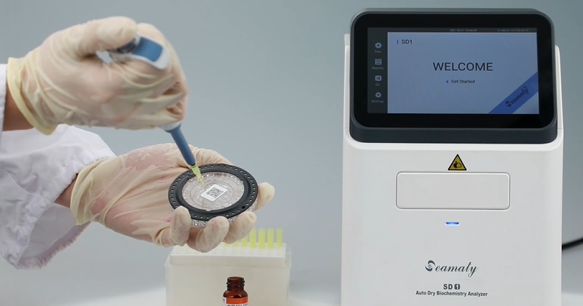release time:2024-03-28 14:42:24
The SMT120 Automatic Biochemistry Analyzer is a multi-functional diagnostic tool integrating conventional biochemistry, coagulation, electrolyte, and immunoassay testing. This powerful system proves its worth in primary care, emergency departments, field operations, and various other settings.
The SMT120, a dry chemistry analyzer tailored for Point-of-Care Testing (POCT), boasts a versatile array of disposable reagent discs. Developed from cutting-edge space technology research, the Seamaty reagent disc is a self-contained single-use chemistry reagent disc engineered to accommodate diverse testing scenarios. Requiring a mere 3-4 drops (100ul) of whole blood, the SMT120 multi-test biochemistry analyzer can test over 46 diagnostic parameters, which can be combined into 21 distinct reagent panels.
Below is a table showcasing the various combinations of reagent discs offered by the SMT120:

The SMT120 is adept at detecting an extensive range of conditions, including but not limited to:
In conclusion, the SMT120 Multi-Test Biochemistry Analyzer represents a paradigm shift in disease detection, offering unparalleled accuracy, efficiency, and versatility across various healthcare settings.

2022-01-13
Coagulation refers to the ability of the body system to maintain the integrity of blood and blood vessels and is a complex interaction between the vessel wall, platelets and coagulation factors.

2021-09-03
Dry chemical analysis is simple, portable, fast, environmental friendly and low cost. Compared with the wet chemical analysis method, dry chemical testing instruments and dry reagents are more portable and can be used to carry out medical and health work in communities and rural areas. Therefore, dry chemical analyzer is especially suitable for primary medical institutions and clinics.

2021-08-12
We take the privacy of our website visitors very seriously and are committed to protecting it. This policy details our handling of personal information.